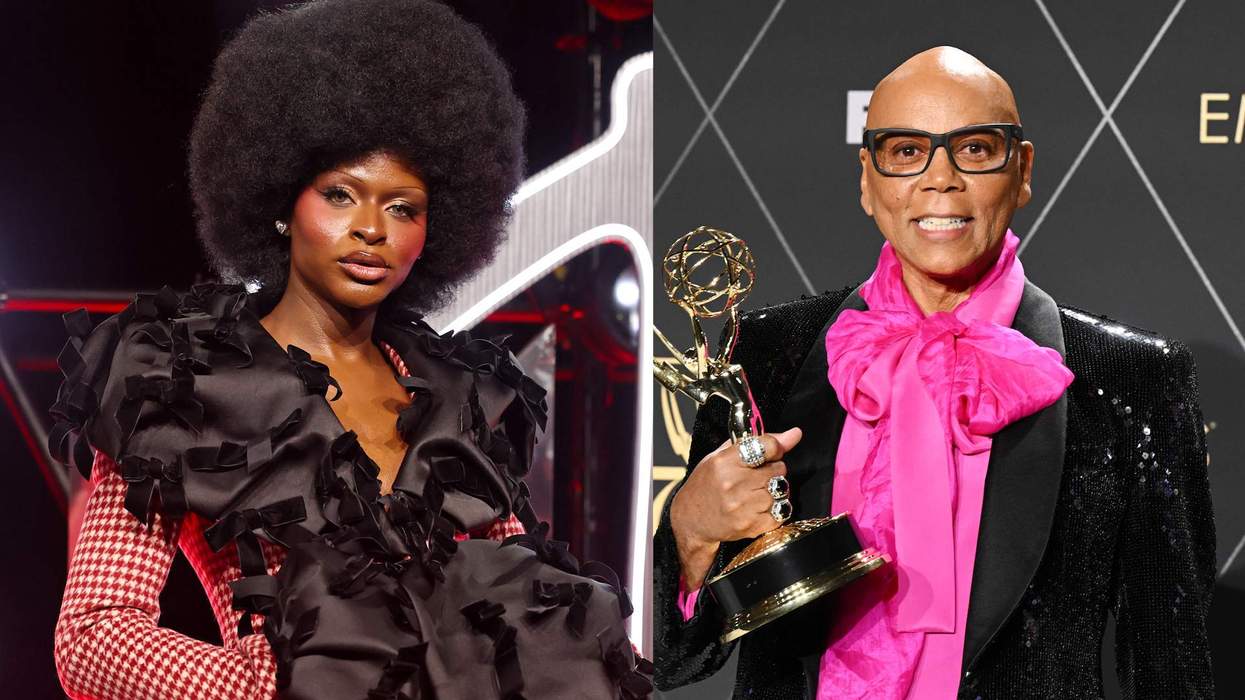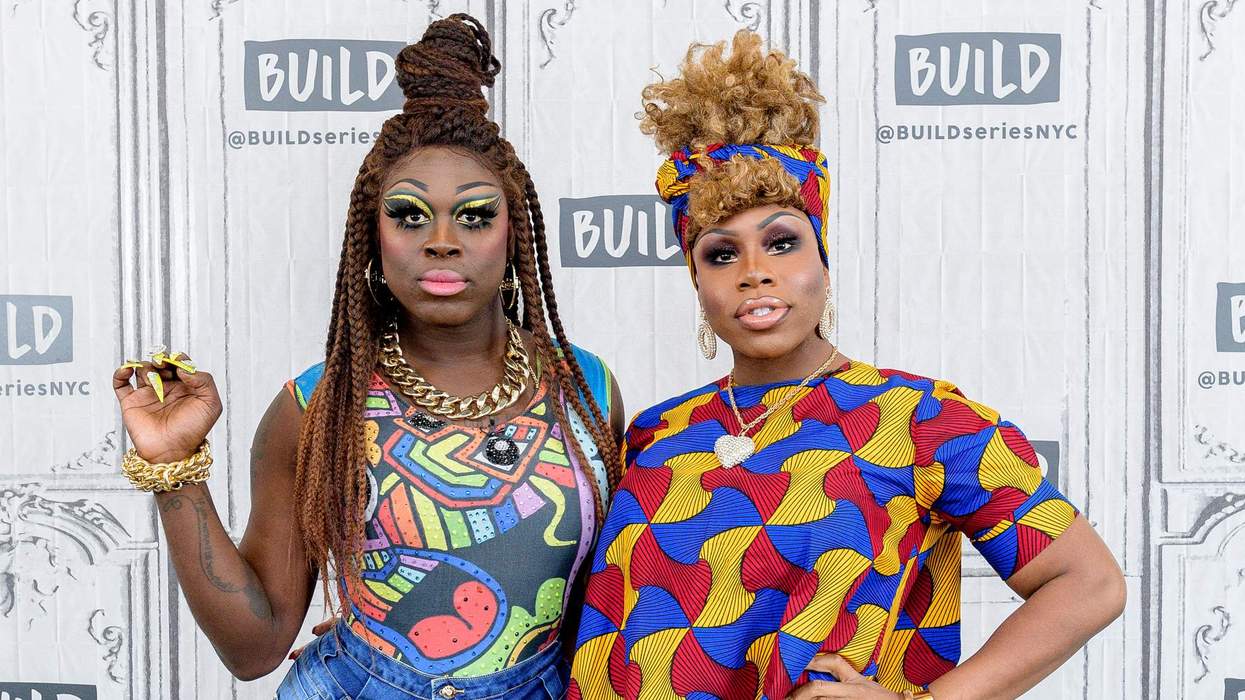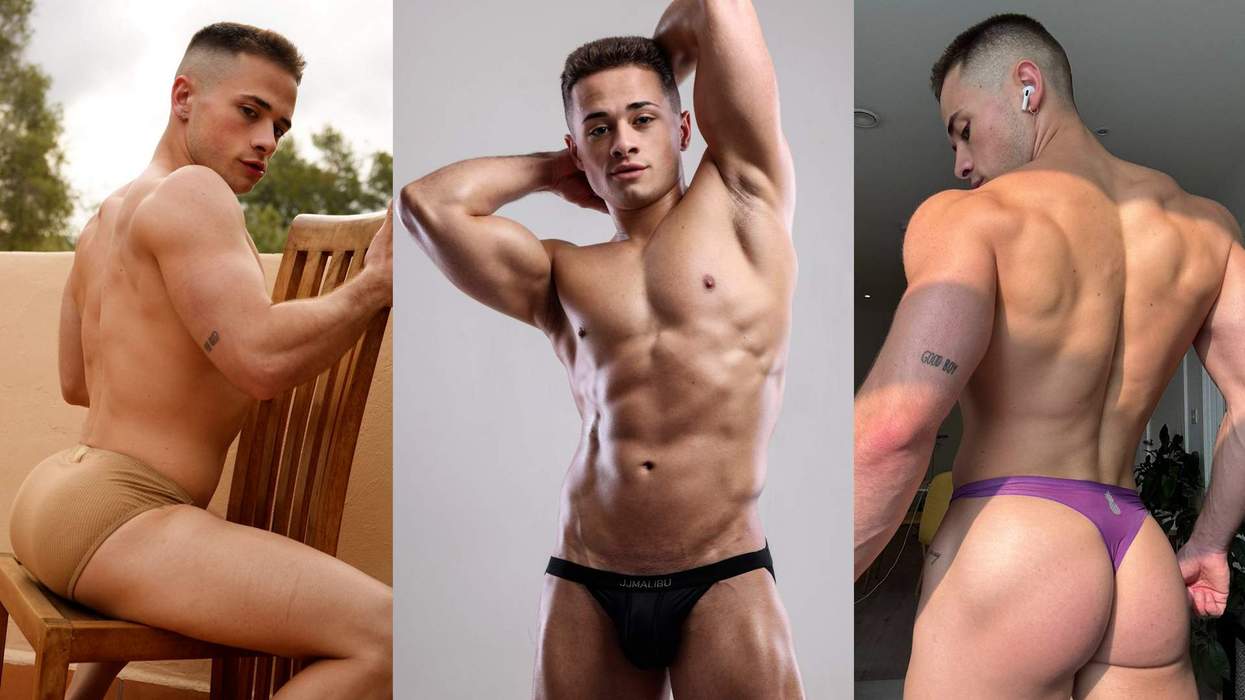Dead Boy Detectives is a lot of things: it’s a story about ghosts solving supernatural crimes; it’s about the meaning of being haunted; it’s about the power of found family, queer awakenings, self-discovery, and the tempting seduction by a Cat King (It doesn’t hurt that this particular plot thread comes in the form of Lukas Gage, just sayin’.) But more than anything, as Yuyu Kitamura who plays Niko tells PRIDE, Dead Boy Detectives is about the message that “love is love.”
“It’s such an exploration of love, that’s the message of our show,” Kitamura says. “Every type of love can exist purely. It’s beautiful to see it all flourish.”
But let’s step back for a second. For those playing catch-up, Dead Boy Detectives is a new supernatural series about two teen detectives — Edwin Payne (George Rexstrew) and Charles Rowland (Jayden Revri) — who solve magical and ghostly mysteries. How, you ask? Well, Edwin and Charles are dead, and very much trying to stay under the radar of Death herself and the afterworld’s vast bureaucracy. They’ve been solving crimes together for decades before the relative peace of their routine gets interrupted by the arrival of Crystal Palace (Kassius Nelson), a demon-possessed medium with a major case of amnesia. Things get even further complicated when a case sends them stateside where they find themselves in the crosshairs of the very seductive, aforementioned Cat King and a local witch. It’s also where their chosen family grows again with the addition of Niko, a charmingly odd, instantly loveable neighbor embroiled in a supernatural quandary of her own.
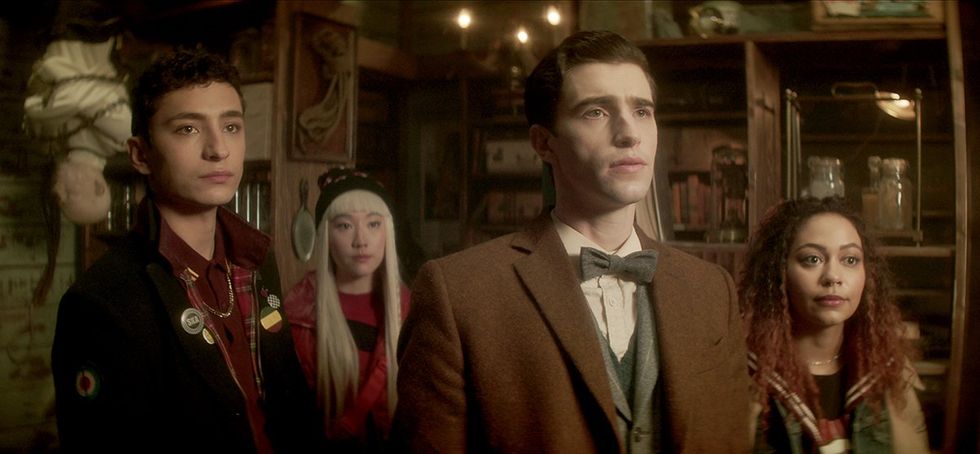
Courtesy of Netflix
If it all sounds fantastical that’s because Dead Boy Detectives is set in the world of Sandman, which was created by Neil Gaiman, the author also responsible for Good Omens. Like both of those stories, queerness is intrinsic and central to the plot and themes of this one. Without delving into spoilers, one of the main plot lines that plays out throughout the season follows Edwin’s queer awakening, exploration, and acceptance. It’s beautiful, relational, occasionally hilarious, but ultimately inspiring.
To be fair, it also leads to a lot of drama for the dead teen detective. “We meet Edwin at a time when he’s very much repressed. He’s the most intelligent one of the gang, but when it comes to emotional intelligence, and awareness, and perhaps self-awareness, he’s not so [well] versed,” Rexstrew tells PRIDE. “He’s the product of his circumstances. He comes from a time period where it was very repressed; even displays of affection between a man and a woman would be frowned upon. So there’s a lot of baggage there.”
The relative normalcy of his life (again, for a ghost) is upended first by the arrival of Crystal, who finds her way into the group, and then by the entrance of the seductive — and very forward — Cat King. “[When] Crystal comes along it kind of opens the floodgates, which leads Edwin to experience jealousy around Charles’s other connections,” says Rexstrew. “Then we meet the Cat King and there’s a lot of awakenings for Edwin — and arguably an unraveling. He can’t really keep up. He doesn’t have the skill set to keep up with that.”
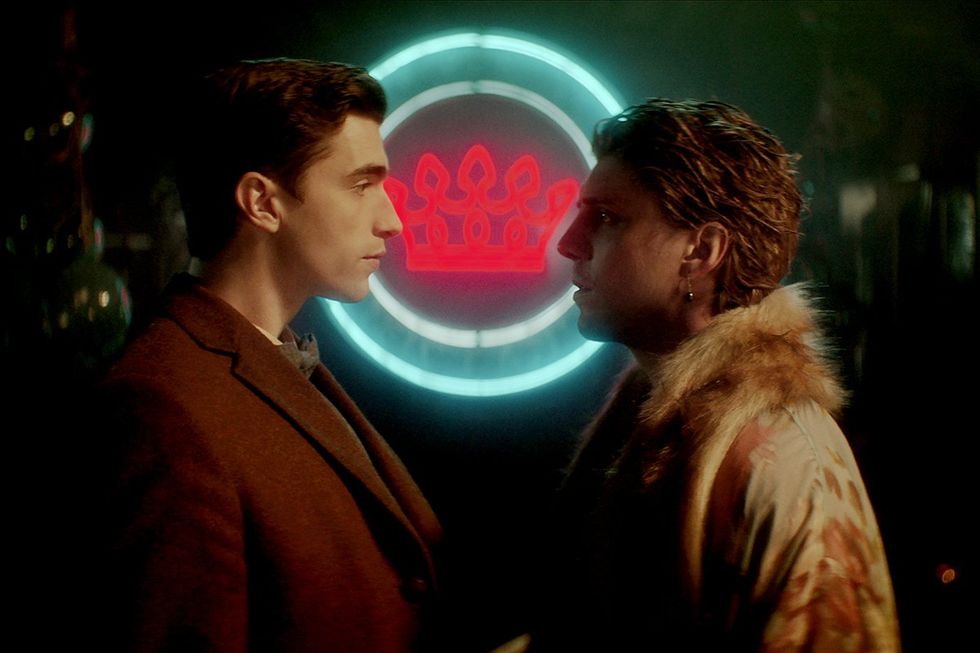
Courtesy of Netflix
Fortunately for Edwin, all of this comes about at a time when, without realizing it, he has managed to form his new chosen family. They offer him both support and total acceptance — even when he isn’t quite ready to see it. Kitamura’s character best embodies this aspect. Unlike her friends, her superpower isn’t mystical but it’s just as impactful. That would be her radical acceptance and love for everyone around her — be they parasitic sprites, former walruses (yes, that’s a thing), or a gay friend who’s really in the thick of his journey of self-discovery.
“It’s a superpower that I think can be forgotten,” Kitamura tells PRIDE. “Sensitivity can be used as a weapon sometimes and we really find her owning that and finding her power and strength in that, and giving her friends the space [they] need. And I feel like we see that flourish in both her relationship with Crystal and also her relationship with Edwin and allowing him to be the human that he missed [out on becoming] because he had passed away so early on in his life.”
It’s something that the character extends to all her friends — who all have good reason to need it. In the case of Crystal, she’s struggling with the ongoing effects of her, ahem, very toxic relationship with an ex… a demon ex. Turns out they might not be as out of Crystal’s life as she thought and hoped. It makes for a poignant plot and some terrifying visuals, but the story also offers a potent metaphor about the way that these kinds of relationships can continue to haunt you long after you’ve removed the toxicity from your life.
Watch PRIDE's full interview with George Rexstrew and Jayden Revri below.
“I think that’s actually a really good way to put it,” Nelson tells PRIDE. “How they want you even after they’re finished or even once you’ve left that toxic environment, there’s still remnants of that, that kind of wear themselves into you a bit. For Crystal, she definitely feels that throughout the season.”
Nelson hopes that not only are audiences entertained by and invested in her story, but that they can perhaps even take something more powerful away from seeing how it all plays out. “[Something] a lot of people can relate to is that you don’t realize what’s happened until you’re in it — and by that point it feels like it’s too late. There’s a level, I think, of embarrassment that she feels to have to confess what happened to her. I think she feels like she’s let herself down or feels partly responsible, which I feel like a lot of people could relate to, even though it’s not true, and I think for Crystal, she feels that.” Ultimately, her story is empowering, but like every experience of healing, there are ups and downs. And in Crystal’s case, plenty of demonic shenanigans to process first.
Watch Pride's full interview with Kassius Nelson and Yuyu Kitamura below.
While Charles may be comfortable battling literal demons, it turns out he has some personal demons to contend with as well. “When I first read the pilot, I thought the same as you. I was like, ‘God, this guy is just happy about everything. Even if it was the worst situation this guy would still smile and find the good out of the situation.’ Once I read the scripts I saw this kind of deep-rooted trauma that he has,” Revri reveals to PRIDE. Like Nelson, Revri is excited for the audience to see how it all plays out because he expects Charles’ struggles to be ones that many men — young and old — will connect with. “I think it says a lot for teenage boys these days. A lot of us put on a brave facade and this macho aura about us when realistically, there’s probably things underneath that we all would like to talk about and we should talk about,” he explains.
While that’s no doubt true, the series also showcases how connection and trust in your found family can offer catharsis and healing. “Credit to Edwin, Niko, and Crystal — he creates this group of a chosen family around him, and you can see how having the right people around, you really can bring these things out of you,” Revri says. “I guess the same for Edwin’s story, Crystal’s story, and Niko’s story. They’re all these lost misfits and they come together and they bring the best out of each other.”
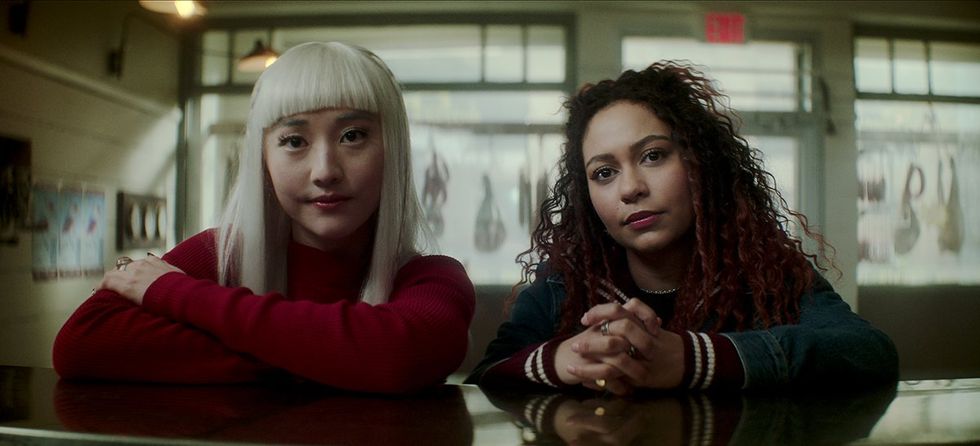
Courtesy of Netflix
While Niko and Crystal are new to the group when the series begins, Edwin and Charles have been a family unit for decades and have forged a powerful bond — much of which goes unspoken. That is until their routines are turned upside down. It’s this aspect that touched Rexstrew about the series. “One of the things that’s really special to me about Edwin and Charles’s relationship is the depiction of love between two men,” he says. “Edwin and Charles, they love each other and it’s the nature of that love that’s explored in the show. Whether it’s platonic, romantic, or whatever form it takes, it doesn’t necessarily need to be wrapped up with a bow by the end. It’s just a really interesting, unique exploration of that love.”
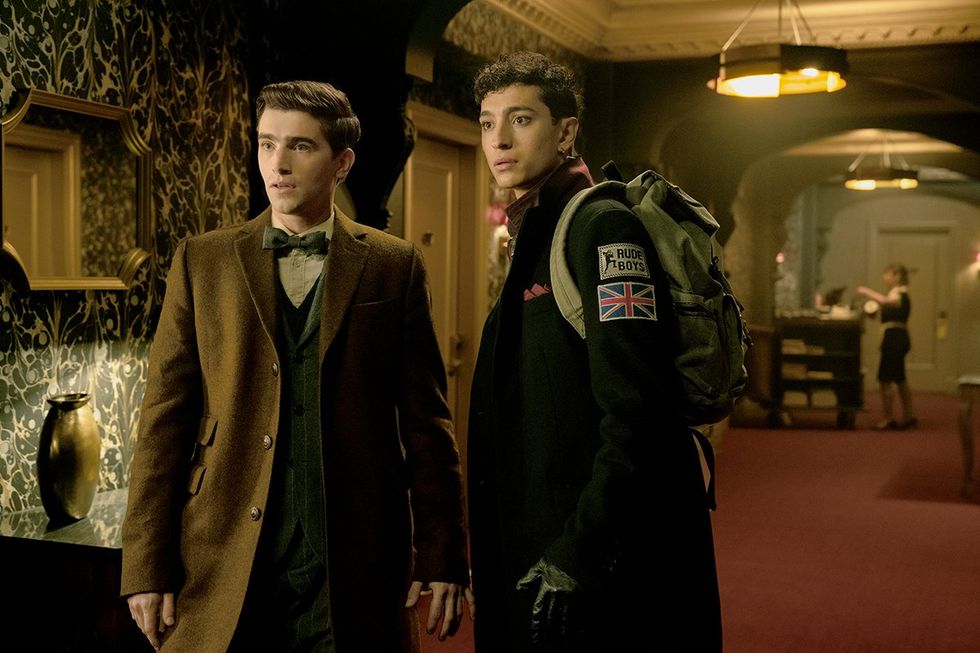
Courtesy of Netflix
So, how does queerness exist in Dead Boy Detectives? Like in life, it’s a spectrum. While Edwin’s identity is explored and more clearly defined, the rest of the characters’ are more in flux. “The world of the show is so vast, and it’s so big, and I think it exists outside of any binary ideas or set limits and structures. So I like the idea that we don’t know and there’s an endless possibility of where their paths could go. We’re not tied down to anything,” explains Nelson. “We’re so much more than just how we’re perceived by people or in terms of set boxes; we have other experiences. And there’s so much that’s tackled in the show with friendship with trust, with chosen family with trauma — it’s all up for grabs.”




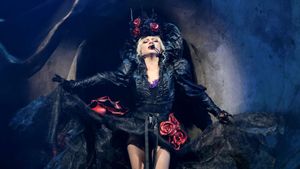

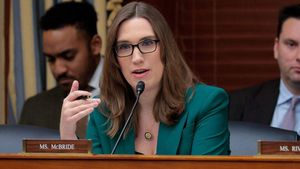
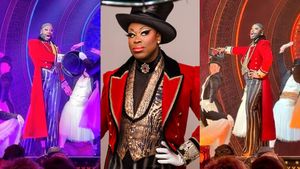



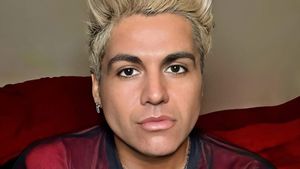
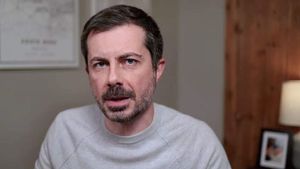
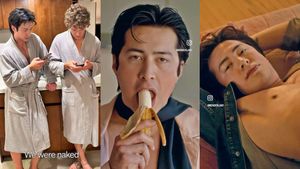
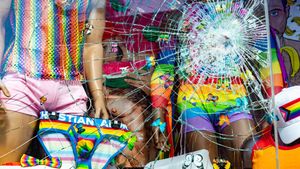
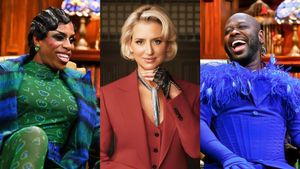




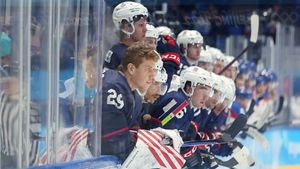
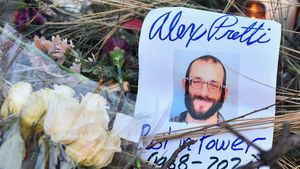





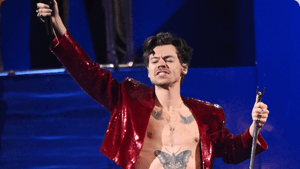



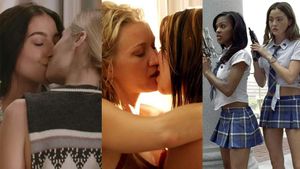
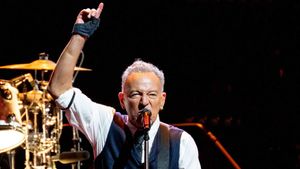


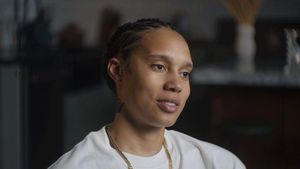






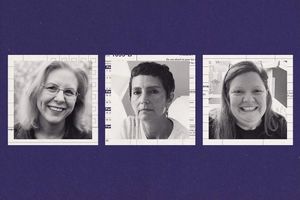


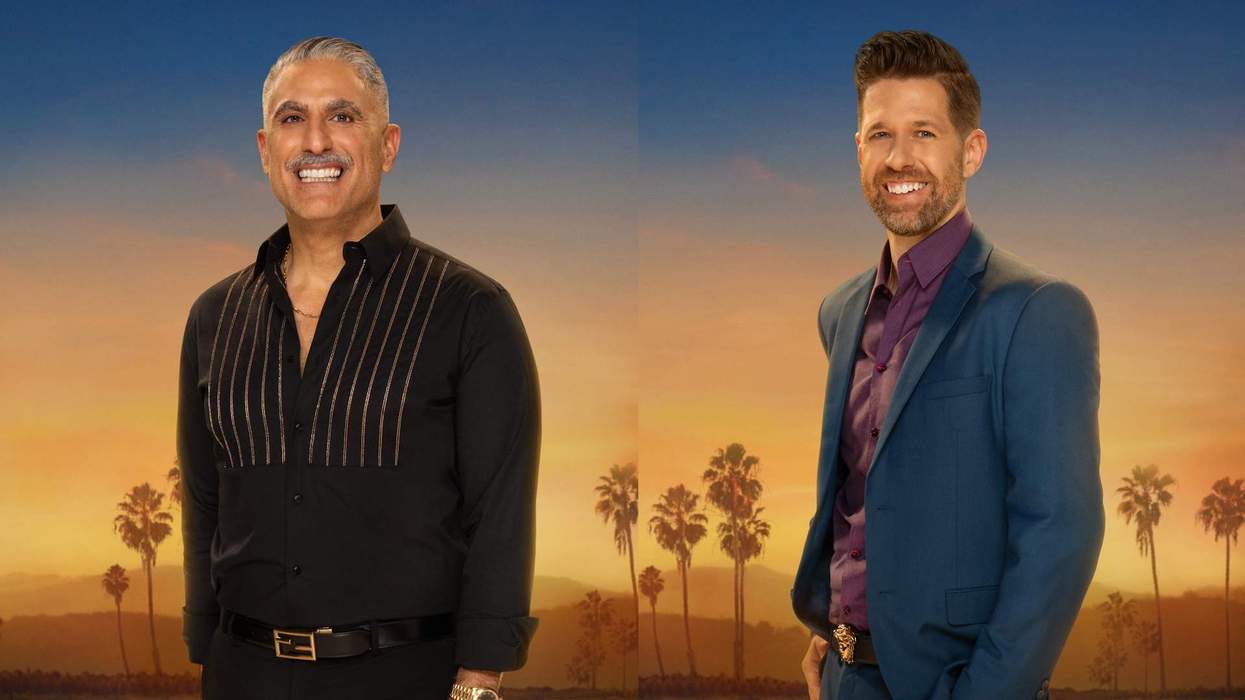
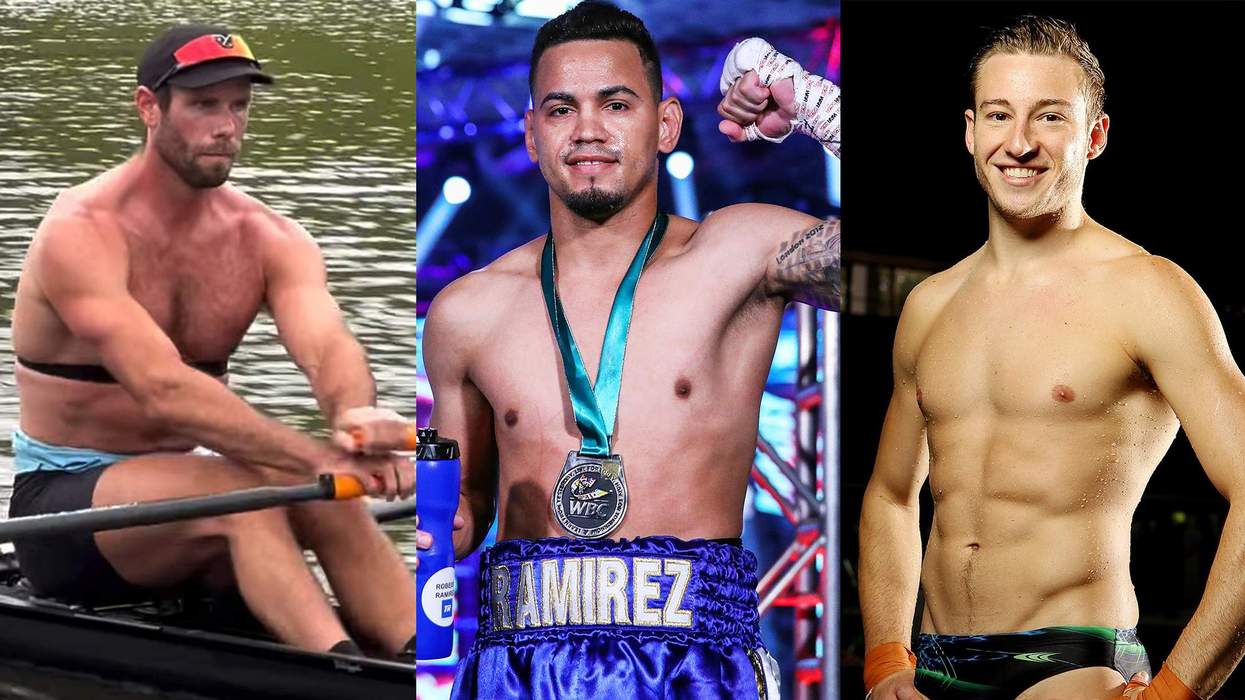

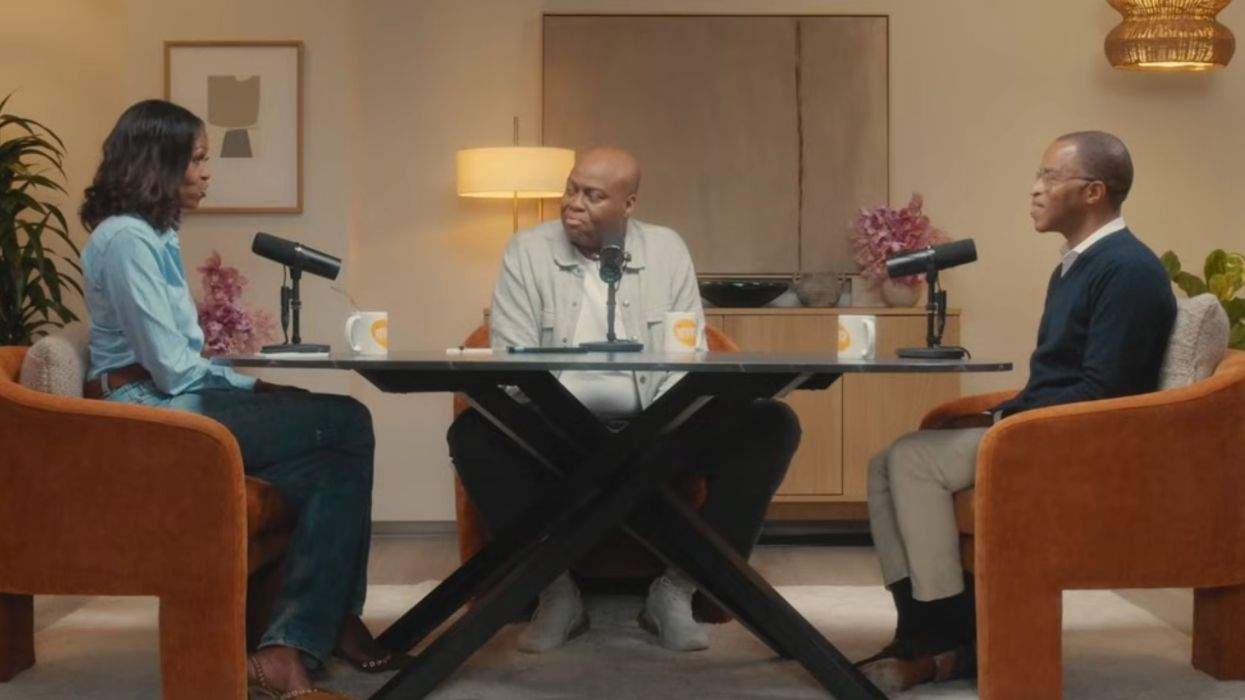






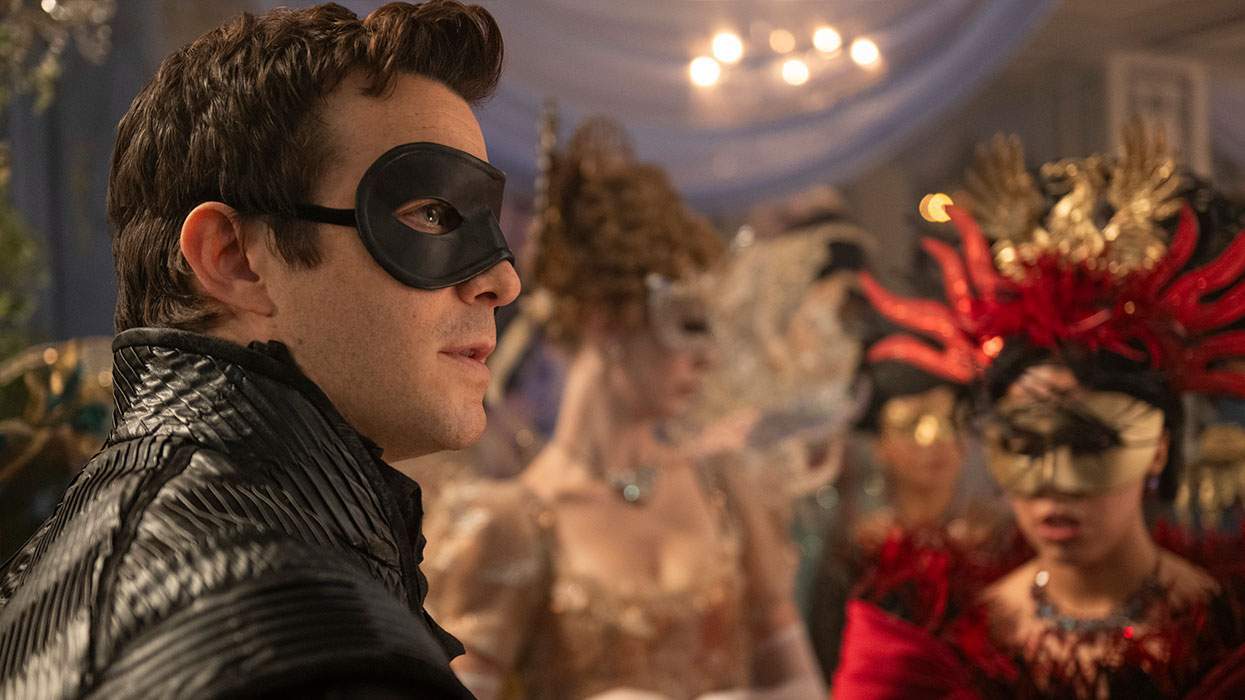

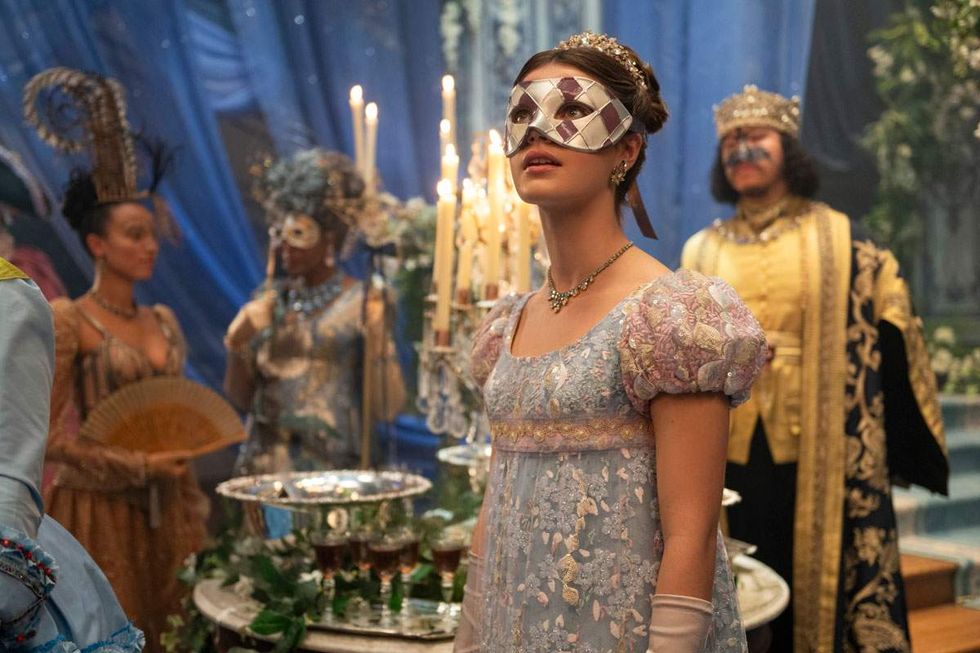 Hannah Dodd as Francesca BridgertonCourtesy Netflix
Hannah Dodd as Francesca BridgertonCourtesy Netflix
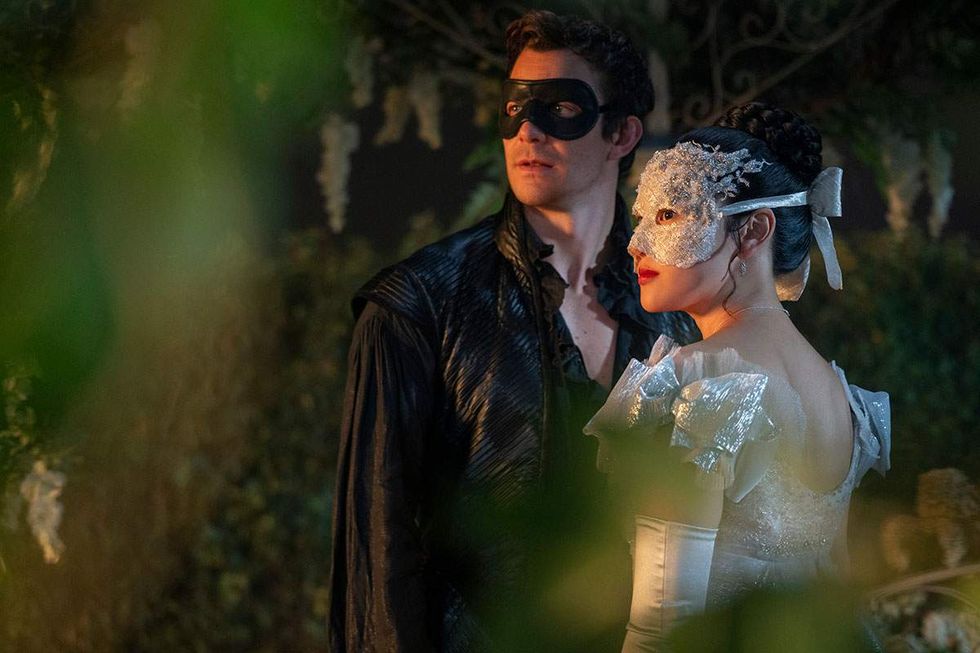 Benedict (Luke Thompson) and Sophie (Yerin Ha) in Bridgerton season 4.Courtesy Netflix
Benedict (Luke Thompson) and Sophie (Yerin Ha) in Bridgerton season 4.Courtesy Netflix
